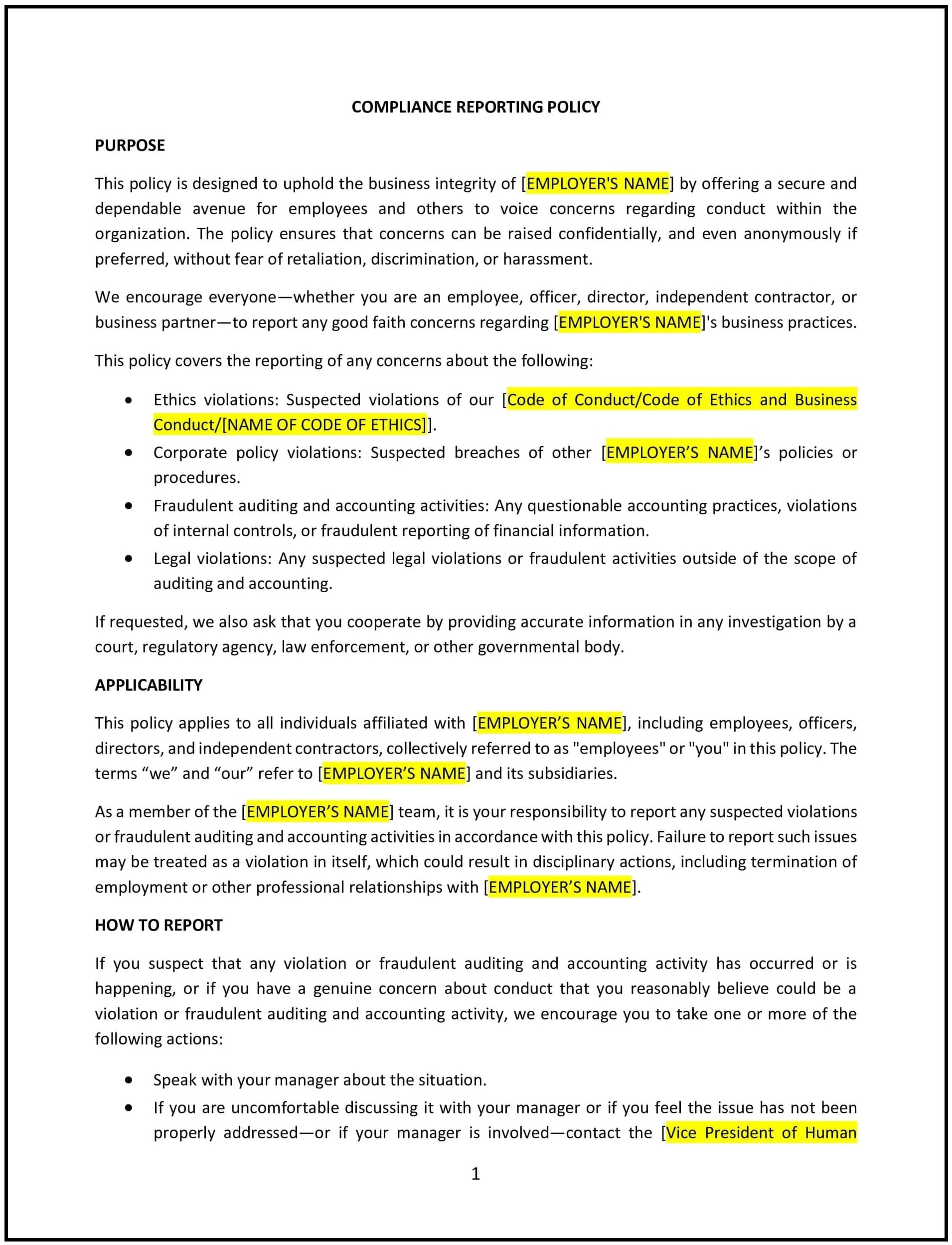Compliance reporting policy (Wyoming): Free template
Got contracts to review? While you're here for policies, let Cobrief make contract review effortless—start your free review now.

Customize this template for free
Compliance reporting policy (Wyoming)
In Wyoming, a compliance reporting policy provides businesses with a structured framework for identifying, reporting, and addressing compliance-related concerns. This policy is especially valuable for organizations in regulated industries such as energy, healthcare, and agriculture, where adherence to state and federal laws helps mitigate legal and reputational risks.
This policy outlines the procedures for reporting compliance issues, the responsibilities of employees and management, and measures for protecting whistleblowers, ensuring transparency and accountability in all operations.
How to use this compliance reporting policy (Wyoming)
- Define reportable issues: Clearly identify the types of compliance concerns employees should report, such as violations of company policies, state laws, or ethical standards.
- Establish reporting procedures: Outline the steps employees should follow to report concerns, including available reporting channels such as a hotline, email, or designated compliance officer.
- Ensure confidentiality: Emphasize the importance of protecting the identity of individuals who report compliance issues to foster trust and encourage reporting.
- Clarify roles and responsibilities: Specify the responsibilities of employees, managers, and the compliance team in addressing and resolving reported concerns.
- Align with Wyoming laws: Ensure the policy reflects Wyoming-specific legal requirements and industry regulations to support compliance and minimize risks.
Benefits of using a compliance reporting policy (Wyoming)
A robust compliance reporting policy provides several advantages for Wyoming businesses:
- Promotes transparency: Encourages employees to report concerns without fear of retaliation, fostering a culture of integrity.
- Supports compliance: Supports compliance with Wyoming state laws and federal laws, reducing the risk of legal violations and associated penalties.
- Enhances accountability: Clearly defines roles and responsibilities for addressing compliance issues, improving organizational efficiency.
- Protects whistleblowers: Safeguards employees who report concerns, ensuring they are not subject to retaliation.
- Addresses industry-specific needs: Tailors reporting procedures to meet the unique regulatory challenges of Wyoming’s key industries, such as energy and agriculture.
Tips for using a compliance reporting policy (Wyoming)
- Train employees: Provide training on recognizing compliance issues and using reporting channels effectively.
- Monitor effectiveness: Regularly review the policy and reporting processes to identify areas for improvement.
- Encourage open communication: Create an environment where employees feel comfortable discussing concerns without fear of judgment or retaliation.
- Document all reports: Maintain detailed records of reported issues, investigations, and resolutions to ensure transparency and accountability.
- Review annually: Update the policy to reflect changes in laws, industry regulations, or organizational needs.